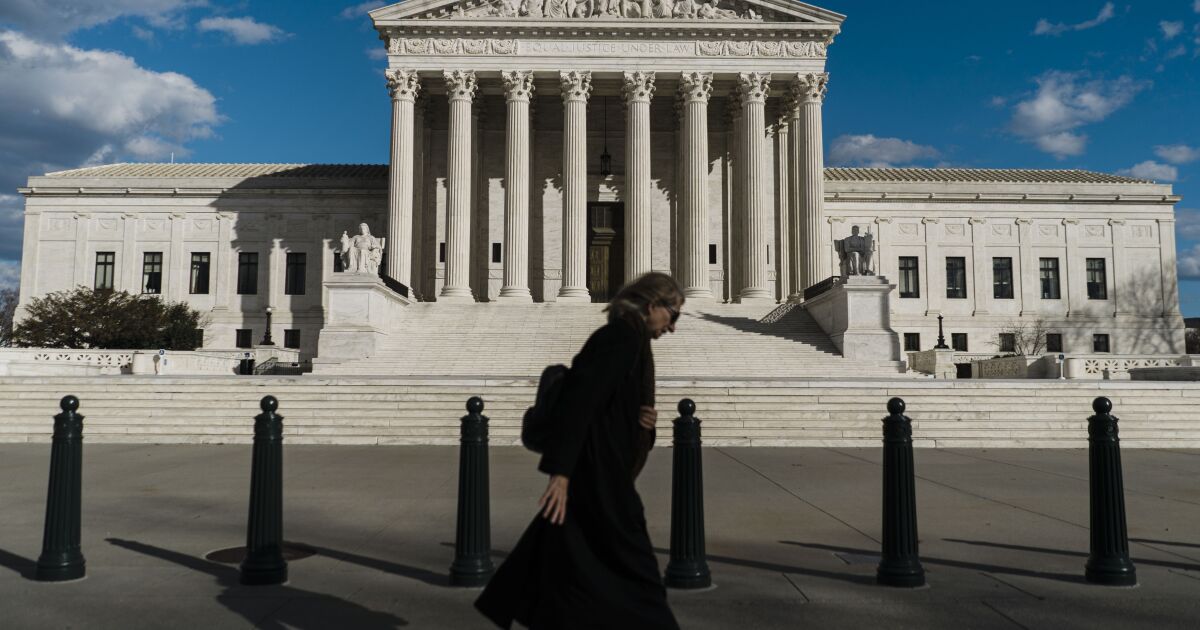The Supreme Court ruled Thursday that the government may invoke the “state secrets” privilege to block former U.S. contractors from testifying about the now well-known waterboarding and torture of prisoners held at CIA sites in Poland.
By a 6-3 vote, the justices said the U.S. government can claim a privilege of secrecy even if there is no secret.
“We agree with the government that sometimes information that has entered the public domain may nonetheless fall within the scope of the state secrets privilege,” Justice Stephen G. Breyer wrote for the majority in U.S. vs. Abu Zubaydah. He said it could “significantly harm national security interests” if the former CIA contractors testified that prisoners were held and tortured in Poland, “even if that information has already been made public through unofficial sources.”
In dissent, Justice Neil M. Gorsuch wrote that the case was not about secrets but the government’s wish to “avoid ... further embarrassment for past misdeeds.”
“We know already that our government treated Zubaydah brutally — more than 80 waterboarding sessions, hundreds of hours of live burial, and what it calls ‘rectal rehydration.’ ... But as embarrassing as these facts may be, there is no state secret here,” he said. “This court’s duty is to the rule of law and the search for truth. We should not let shame obscure our vision.”
Advertisement
The high court first said in 1953 that the government may shut down a lawsuit or shield certain documents from courts in order to protect military secrets. But that doctrine has expanded over time. Moreover, the government argues it deserves the “utmost deference” whenever it claims national security may be at risk if a court case proceeds.
Zubaydah’s case was unusual because the events were long past and the facts were well-known. The key facts “have long been declassified,” Gorsuch wrote. “Official reports have been published, books written, and movies made about them.”
But six justices said the former CIA contractors may not testify about what happened to Zubaydah because they could confirm the CIA black sites were in Poland. A former Polish president has already confirmed that, but U.S. officials have not.
Justice Sonia Sotomayor joined Gorsuch in dissent. Justice Elena Kagan said the case should be allowed to proceed without testimony about Poland.
A lawyer for the American Civil Liberties Union‘s National Security Project called the court’s decision “wrong and dangerous.”
...

Supreme Court upholds government's claim of secrecy in case of prisoner tortured by CIA
The U.S. government had invoked "state secrets" to block testimony on how prisoners were tortured by the CIA.
